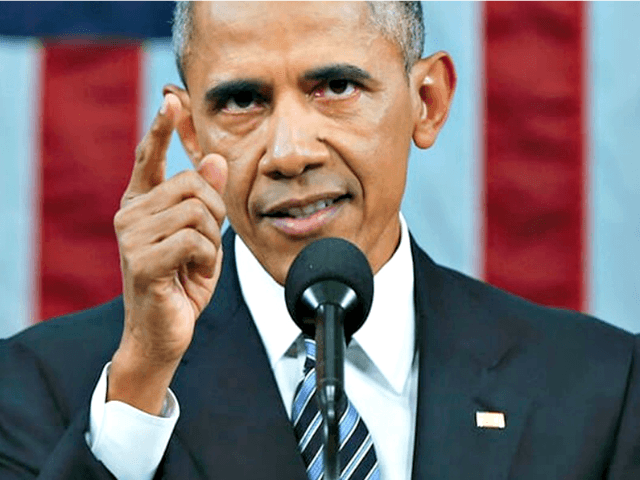The chairman of the House Committee on Science, Space and Technology ripped into how President Barack Obama’s Energy Department officials tried to destroy the career of scientist Noelle Metting, who testified to his committee about the merits of the Department of Energy’s low-dose radiation program–a program DOE wished to raid to fund climate-related projects.
“Instead of providing the type of scientific information needed by Congress to legislate effectively, senior departmental officials sought to hide information, lobbied against legislation, and retaliated against a scientist for being forthcoming,” said Rep. Lamar R. Smith (R-Texas), a former chairman of both the House Ethics and the House Judiciary committees.
“In this staff report based on lengthy record before the committee, much has been revealed about how senior level agency officials under the Obama administration retaliated against a scientist who did not follow the party line,” he said.
Metting was put on administrative leave after a DOE holiday party in December 2014, and she was finally terminated in May 2015.
A committee staffer briefed reporters that Metting, a senior radiation biologist with a doctorate in cancer biology from the Harvard School of Public Health, advocated for the department’s Low Dose Radiation Research Program, which researches, among other things, the effects upon humans of exposure to radiation-emitting medical devices, microwave ovens, and hostile radiation dispersal devices — so-called “dirty bombs.”
The staffer said the size of the program’s budget of $20 million was the issue. Rather, DOE officials targeted the program because it was created by executive order by President William J. “Bill” Clinton and was never specifically directed by Congress. As a program run at the discretion of the president, DOE was able to administratively reprogram the funding to support projects associated with the president’s 2013 Climate Action Plan.
When Congress began the process of formally authorizing the program through legislation, DOE officials gave confusing and contradictory testimony before the committee about the program, he said.
In addition to pressuring Metting personally, her supervisors sought to keep Metting from using specific slides in her presentation and from communication with Capitol Hill, despite her status as the department’s sole expert on the subject, the staffer said.
The pattern of misdirecting Congress was exposed by Metting, who briefed committee staffers in October 2014 about the functions and benefits of the programs, such that she undermined the DOE scheme to shut down the low-dose radiation office and divert its funds, according to the committee staff report.
In the committee’s staff report, two DOE officials are highlighted: Julie Carruthers, a senior science and technology adviser in the Office of the Deputy Director for Science Programs, and Sharlene Weatherwax, DOE’s associate director of Science for Biological and Environmental Research.
Carruthers was cited for her unwillingness to protect Metting and her willingness to allow actions taken against Metting to chill the workplace environment for department scientists. It was Carruthers who told her bosses that she would subtly, but forcefully tell senators not to support the low-dose legislation in the House.
Metting told Congress that after she was fired, Weatherwax immediately came into Metting’s office with a large trash container and began chucking her personal affects and possessions into the bin. Although Metting was reinstated along with an undisclosed settlement, many of those items have not been returned.
In emails to a DOE colleague,Weatherwax also worked to prevent senators from creating their own low-dose bill as DOE worked to kill the House bill: “That’s why you need to brief the Senate folks so they don’t develop their own bill. These are technically different staffers than the ones who introduced the bill.”
In September testimony before the Science Committee‘s Oversight subcommittee, Rep. Barry D. Loudermilk (R.-Ga.), the subcommittee chairman, asked Weatherwax if she or her team lobbied the Senate.
Loudermilk: Dr. Weatherwax, was one of your goals for the October 16, 2014, briefing with the Congressional staff to dissuade the Senate from offering a companion bill to the House bill?
Weatherwax: Chairman Loudermilk, I had no explicit goals for the briefing other than to provide information that was requested at the briefing. The briefing – I did not personally attend the briefing.Loudermilk: So if the intention would have been to dissuade the Senate from introducing their own bill, then that would – would you consider that a form of lobbying?
Dr. Weatherwax: I am not aware of the official definition of lobbying, but since I had no intention of doing any of that activity, I can’t really answer to it.
The committee’s staff report states that Obama’s DOE officials’ disregard for the separation of powers is not limited to a small group of employees, but rather is an institutional problem that must be corrected by overhauling its management practices with respect to its relationship with the Congress.
Smith said, “Moving forward, the department needs to overhaul its management practices to ensure that Congress is provided the information it requires to legislate and that federal employees and scientists who provide that information do so without fear of retribution.”

COMMENTS
Please let us know if you're having issues with commenting.